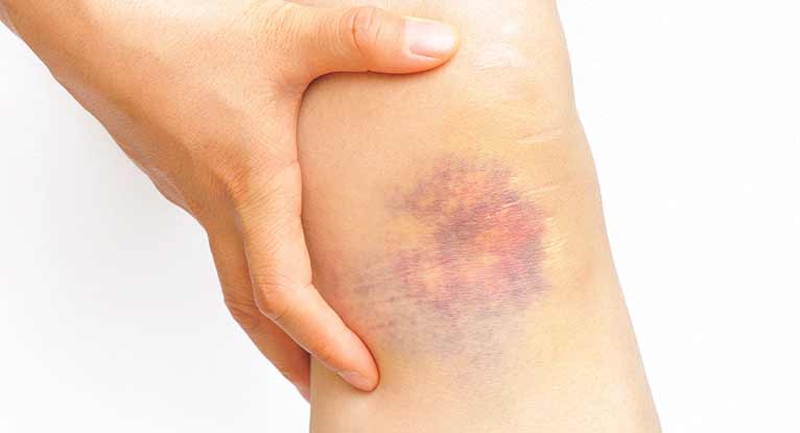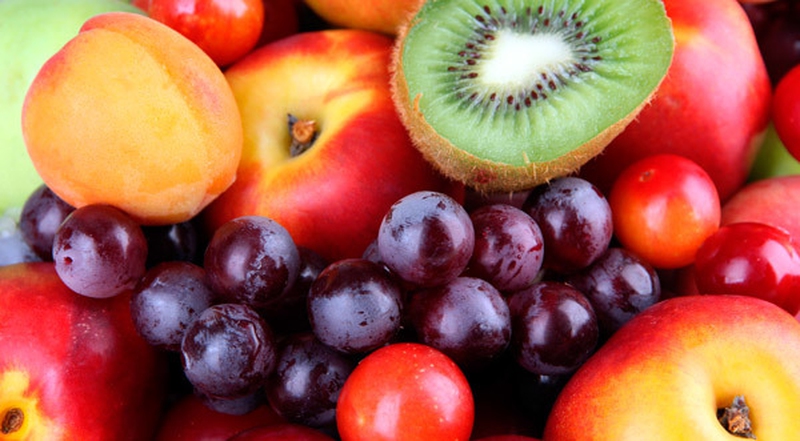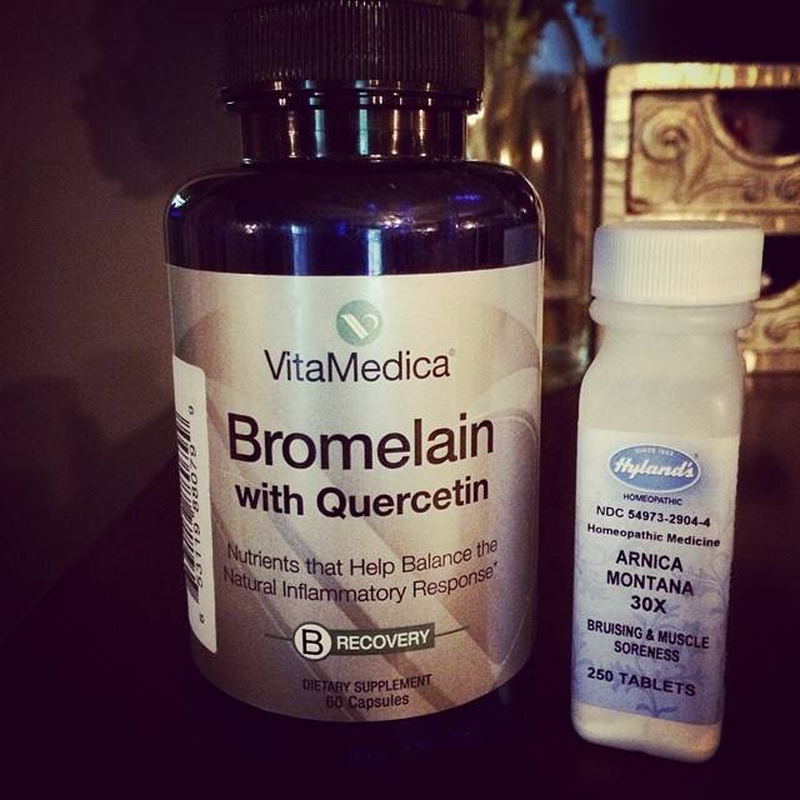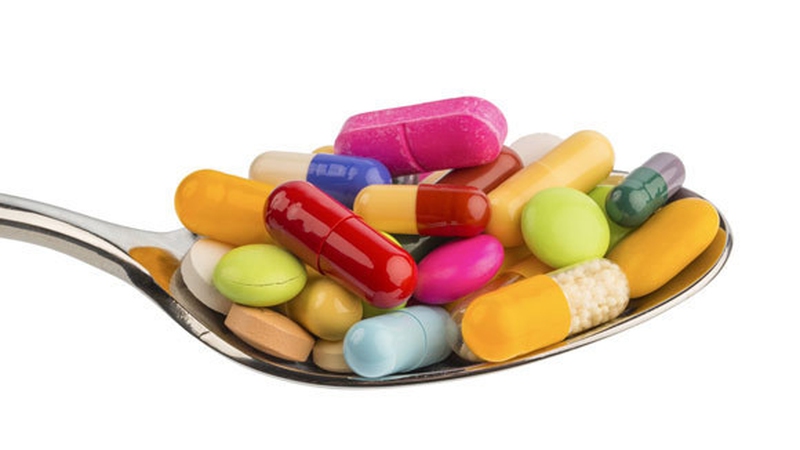When you fall or accidentally hit a part of your body, you may see a bruise on the skin. Bruises occur when blood vessels break under the skin. This can also after you have surgery or some cosmetic treatments like Botox. If you are wondering how to prevent bruising, you will want to utilize the following information to prevent and reduce the appearance of bruises.

Getting the right vitamins in your diet
Bioflavonoids. People who find themselves bruising easily may have fragile capillaries that are easily torn. Bioflavonoids can help keep these capillaries strong and flexible. Dark colored berries, dark leafy greens, onions, and garlic can supply you with an excellence source of bioflavonoids. Besides, there are different types of bioflavonoids you will want to make sure you are including in your diet.
Rutin is a type of bioflavonoid that can significantly strengthen blood vessels. Those who suffer from varicose veins, hemorrhoids and bruise easily will benefit from taking rutin. You can find it from buckwheat, figs, apple peel, etc.
Hesperidin is a type of bioflavonoid that can help strengthen the capillaries. This type of bioflavonoid can be found in a variety of citrus peels.
Vitamin K. Vitamin K aids in blood clotting. When you have a vitamin K deficiency, easy bruising can occur. To get the best source of vitamin K, include dark leafy greens like spinach, Swiss chard, kale, and mustard greens into your diet. Other sources vegetables that have plenty of vitamin K in them include asparagus, broccoli, and green beans. Consuming enough vitamin K also ensures your body has enough of the good bacteria in the large intestines. Yogurt, sauerkraut and kefir help deposit these good bacteria to the intestines. Those who suffer from an imbalance of intestinal flora from taking antibiotics or disease of the intestines will benefit a great deal from these foods with good bacteria.
Omega-3 Fatty Acids. How to prevent bruising? You can help yourself by moderating your consumption of omega-3 fatty acids. While omega-3 fatty acids can be beneficial for those who suffer from chronic inflammation diseases, excess omega- 3 fatty acids can increase bruising. Excessive omega-3 fatty acids usually occur when you add a supplement to your diet instead of consuming them from natural sources. The body responds to cuts, burns, and bruises with inflammation. This is done so that no further damage comes to the surrounding tissues. The excess omega-3 fatty acids and other anti-inflammatory foods like ginger, garlic, and turmeric can increase bruising because it limits the inflammation to occur.
Vitamin C, Snacks and Sweets. People who lack ascorbic acid or vitamin C in their diets have shown to bruise more easily. Consuming enough vitamin C will help strengthen small blood vessels and reduce bruising. If you are someone who bruises easily, you will want to include foods rich in vitamin C in your diet.
People with a vitamin C deficiency tend to be those who eat more sugary foods on a regular basis. Sugar and vitamin C have almost the same chemical structures, which leads to them competing with one another when trying to enter into cells.
Additional Tips. Get enough lean protein. Protein will help strengthen the walls of the blood vessels. Foods like eggs, fish, and nuts can all be a good source of protein to help reduce bruising.
How to prevent bruising? Eat more healthy fats. Healthy fats can help increase the flexibility of the capillary walls. Foods like avocados, seeds and oily fish are all types of healthy fats you want to include in your diet.
Supplements to prevent bruising
Arnica Montana and Bromelain are two of the best supplements that can help prevent bruising. Arnica Montana can help reduce the appearance of bruising. This is because Arnica uses the natural vasodilator Helenalin to help heal the bruised area. Bromelain, which can be found in pineapples, also helps in the healing process. It can also be found in Cyruta Plus and Cataplex Acp to help strengthen blood vessels.
Another supplement, Pycnogenol is an antioxidant that is made from pine tree bark. Proanthocyanidins, a component of pycnogenol, help strengthen the capillaries, veins, and arteries. This supplement can also improve skin elasticity because it helps bind the underlying collagen fibers.
Bilberry extract is also useful. This extract contains anthocyanosides, an antioxidant that can stabilize collagen and increase the effectiveness of vitamin C.
Change in lifestyle
Limit your intake of aspirin, NSAIDS and NSAIDS containing products. Medications like Motrin, ibuprofen, Advil, Midol, Excedrin and other cold medicines can increase bruising. These medications ultimately stun the platelets which are needed to stop bleeding and bruising when damage occurs to the blood vessels or capillaries.
Limit your alcohol consumption. Alcohol has anti-platelet effects which acts in the same way as aspirin and NSAIDS medication do.
Avoid certain supplements. While the answer to "how to prevent bruising" can include taking certain supplements, there are a few you will want to avoid. Vitamin E, ginkgo biloba, ginseng, ginger, and St. John's wort can all act as blood thinners.
When partaking in outdoor activities or sports, be sure to wear protective gear. The gear can greatly reduce any bruising that can occur from impact or falls.
Keep floors free of clutter and use a small night light in the evening to ensure you don't run into anything or trip on anything in the middle of the night. Floors should also be kept dry and any rugs should be slip resistant.



View All Comments /Add Comment